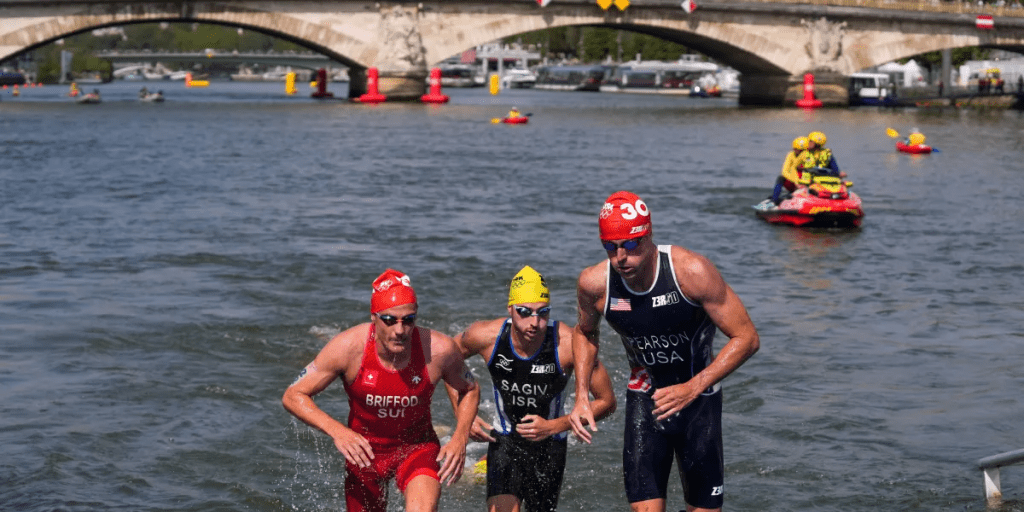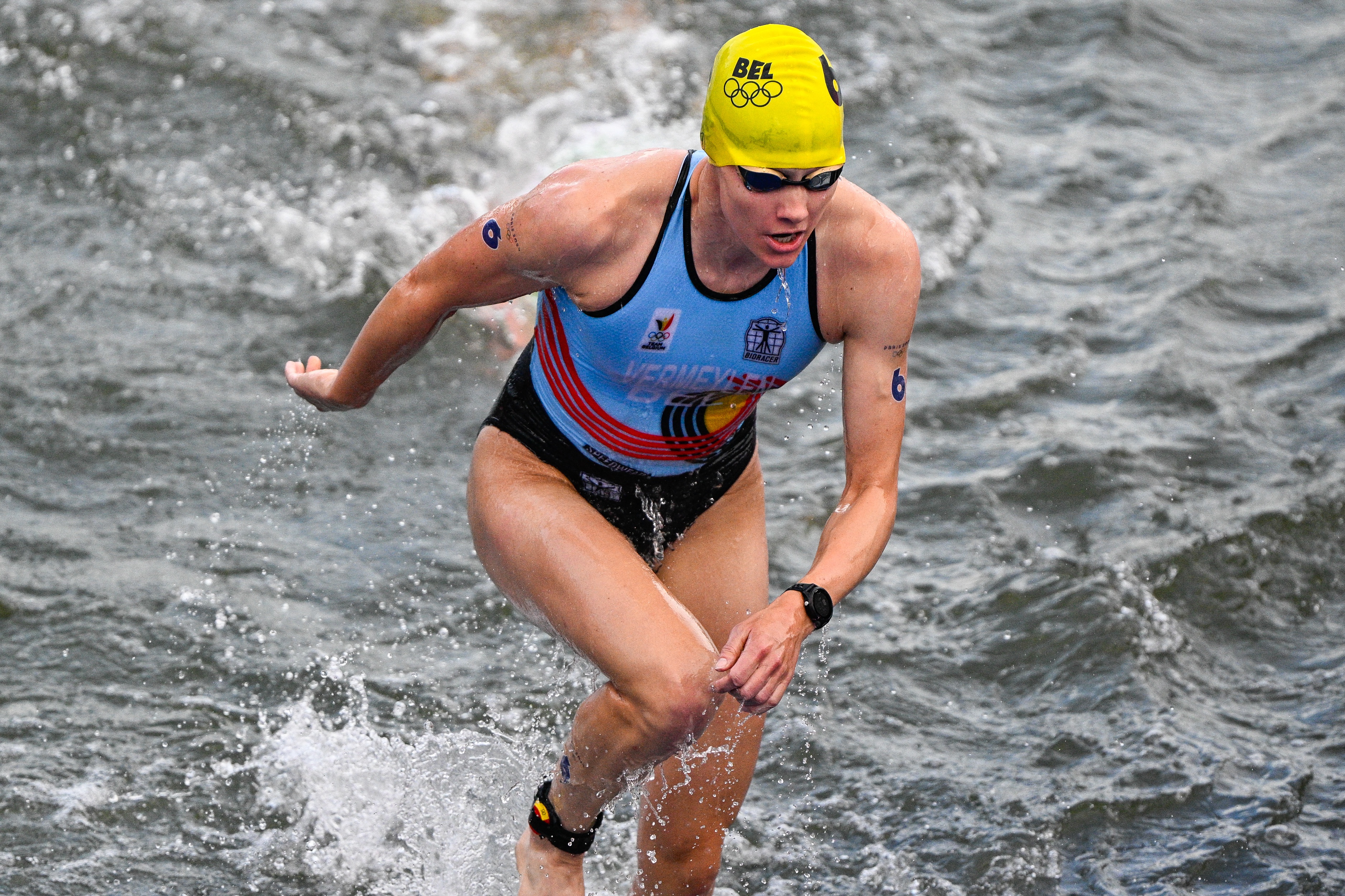Olympic triathletes competing in the River Seine during the 2024 Paris Games have raised serious concerns, citing fears of waterborne diseases and the challenge of navigating the waterway’s formidable currents.

The Seine River, historically so polluted that swimming was banned for a century, has now become a stage for Olympic athletes. Some triathletes have voiced concerns about the water quality, hoping they can avoid potential bouts of E. coli.
Team USA triathlete Taylor Spivey, who competed at the women’s individual triathlon in Paris, voiced major concerns after swallowing “a ton of water” during her triathlon event. “I’ve taken a lot of probiotics over the past month. So we’ll see how it goes,” she said.
Spivey’s teammate, Seth Rider, who competed in the men’s individual triathlon, echoed similar sentiments. “Hopefully I can handle some E. coli. Because I swallowed so much water out there. Probably everyone did,” he stated.
Rider explained that high-level triathletes are used to dealing with dirty water as part of their routine. Since dirty water is common, they take precautions like taking probiotics, getting a good night’s sleep, and starting their day early.
He noted it’s surprising how much people worry about the water they drink during competitions. This focus on water quality might be why others find it easy to make athletes feel uncomfortable or vulnerable. Rider added, “I’m here to race; I don’t really care what the water is like.”
Like Rider, Belgian triathlete Jolien Vermeylen was quite cynical about the Seine’s water quality, humorously recounting her unsuccessful attempt to avoid swallowing it during the race.
Vermeylen explained, “I swallowed quite a bit of water, so we’ll quickly find out if I get sick or not. It doesn’t taste like cola or Sprite, of course. ” She added, “While swimming under the bridge, I also smelled and saw things you shouldn’t think too much about.”

Jolien Vermeylen competes in the women’s individual triathlon at the 2024 Paris Olympics on July 31, 2024 | Source: Getty Images
Vermeylen doubted the water quality would improve on race day, noting that the previous night’s rain likely made it worse. She said that canceling the race would have been a major embarrassment for the organizers and France, and postponement wasn’t an option.
In light of this, Vermeylen hoped that athletes would remain healthy. She mentioned her own efforts to stay well by taking probiotics and drinking Yakult.
Vermeylen’s teammate, Marten Van Riel, also criticized the Seine’s poor water quality. “Let’s hope it was clean, but while swimming we couldn’t see our hands. It was that murky. I also have a bit of stomach pain from the water I swallowed,” Van Riel said.
Despite these challenges, Van Riel managed to maintain his focus. He effectively blocked out distractions, agreeing with editor Marc Herremans that conditions were “the same for everyone.” By shifting his attention entirely to the race, he achieved success.
While the American and Belgian athletes reported unpleasant experiences swimming in the Seine, Cassandre Beaugrand, who won gold in the women’s event, had a different perspective. She was not worried about swimming in the river.

Cassandre Beaugrand poses on the podium during the women’s individual triathlon medal ceremony at the Paris 2024 Olympics on July 31, 2024 | Source: Getty Images
The French triathlete’s confidence aligns with the significant efforts being made to ensure the Seine’s safety for swimmers. In June 2024, the Associated Press reported a $1.5 billion investment to clean up the river ahead of the Olympics.
Christophe Dubi, an International Olympic Committee (IOC) official, expressed confidence in the safety of the Seine for these events, stating, “We are confident that we will swim in the Seine this summer.”
Besides the questions surrounding the Seine’s water quality, some athletes also struggled with the Seine’s strong currents. Spivey described the current as “insane” and “shocking.” She also thought officials might even stop the race or pull athletes out after one lap.
Recalling that moment, Spivey shared, “That current – wow. I felt like I was on a treadmill in one place.” Like Spivey, Van Riel and Vermeylen also pointed out the Seine’s challenging flow.
Vermeylen remarked, “It can be a maximum of 1.0 m/sec, and I suspect it was around 0.9. At one point, we swam past a boat and barely made any progress. So yes, that was miraculously good too.”
Despite the challenging currents, the triathletes excelled in their events. After Beaugrand claimed gold in the women’s race, Switzerland’s Julie Derron secured silver and Britain’s Beth Potter took bronze. In the men’s race, Alex Yee of Britain won gold, Hayden Wilde of New Zealand earned silver, and France’s Léo Bergère won bronze.